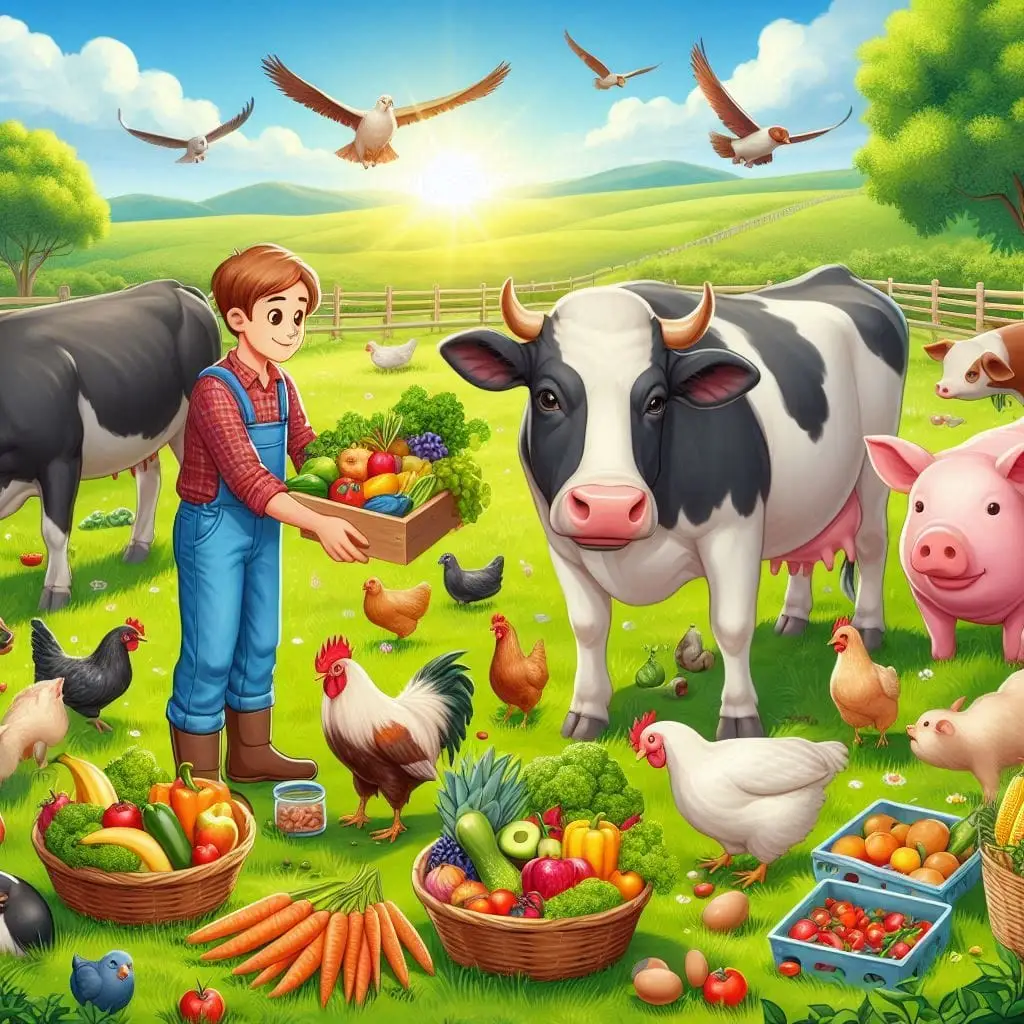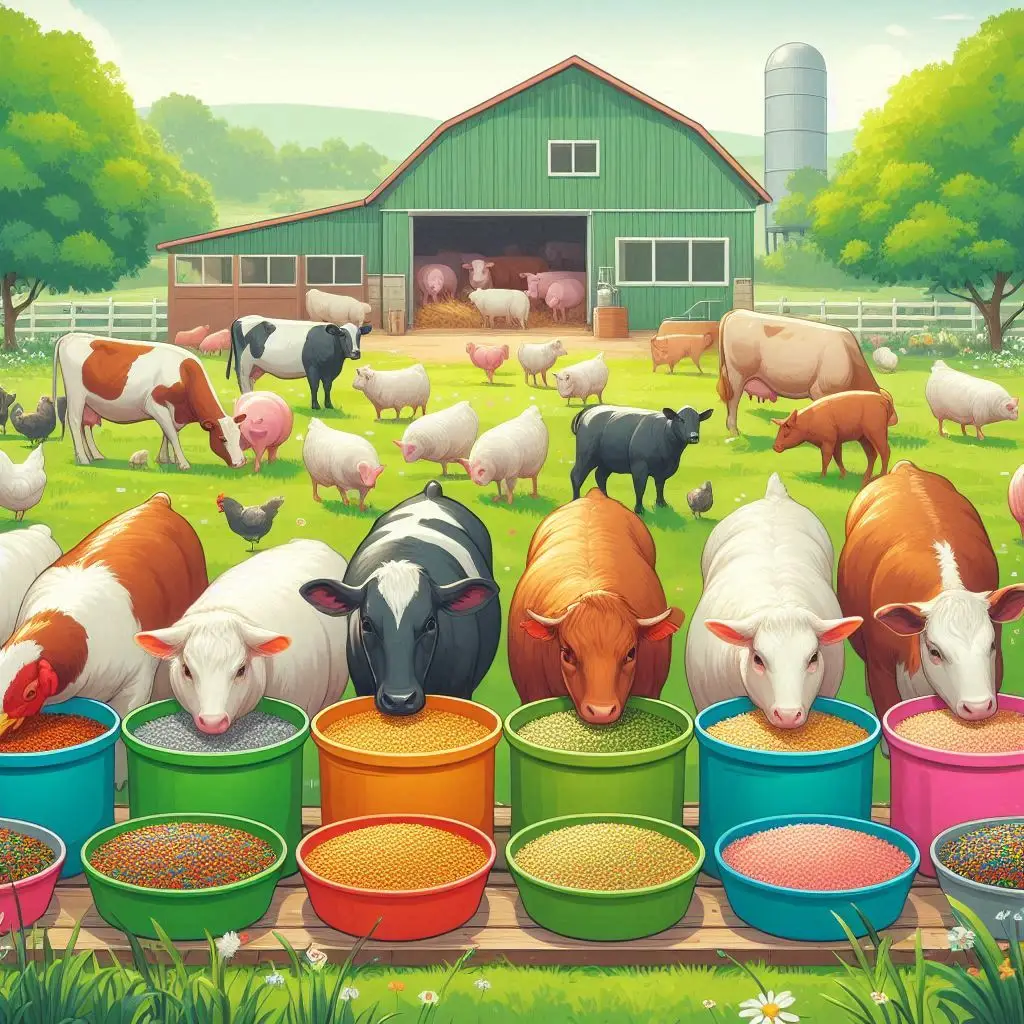Oligosaccharides in Livestock Nutrition

Oligosaccharides are gaining recognition in livestock nutrition. These compounds serve as prebiotic fibers, promoting gut health and improving animal performance. In this article, we will explore the types of oligosaccharides, their mechanisms of action, and the benefits they offer to livestock.
What Are Oligosaccharides?
Oligosaccharides are carbohydrates composed of a few sugar molecules. The prefix “oligo-” means “few,” indicating that these compounds consist of short chains of sugars. They are not digested in the upper gastrointestinal tract, allowing them to reach the large intestine intact. Here, they serve as food for beneficial gut bacteria, which leads to various health benefits for animals.
Types of Oligosaccharides
- Fructo-Oligosaccharides (FOS):
- FOS are chains of fructose molecules.
- Commonly found in plants like chicory root and asparagus.
- Act as prebiotics, stimulating the growth of beneficial bacteria.
- Galacto-Oligosaccharides (GOS):
- GOS consist of galactose chains.
- Naturally present in milk and other dairy products.
- Support gut health by acting as prebiotics.
- Mannan-Oligosaccharides (MOS):
- Derived from yeast cell walls.
- Help improve gut health by binding pathogens and mycotoxins.
- Promote the growth of beneficial bacteria.
Mechanisms of Action
Oligosaccharides reach the large intestine undigested. Here, they undergo fermentation by specific groups of bacteria. This fermentation process produces short-chain fatty acids (SCFAs), which provide energy to the host animal and support gut health.
Fermentation Process
- Beneficial bacteria ferment oligosaccharides.
- This fermentation results in SCFAs like acetate, propionate, and butyrate.
- SCFAs contribute to gut health by nourishing intestinal cells and regulating inflammation.
Benefits of Oligosaccharide Feed Additives
1. Improved Gut Health
Oligosaccharides promote the growth of beneficial gut bacteria. This leads to a balanced microbiota, essential for overall gut health. A healthy gut microbiome helps prevent gastrointestinal diseases and enhances nutrient absorption.
2. Enhanced Immunity
A robust gut microbiota is closely linked to a strong immune system. Oligosaccharides can improve an animal’s immune response by enhancing the production of immunoglobulins like IgA and IgM. This helps animals resist infections more effectively.
3. Reduced Pathogen Load
By promoting beneficial bacteria, oligosaccharides can inhibit the growth of harmful pathogens. They compete with these pathogens for resources and space in the gut, reducing the risk of colonization and infection.
4. Enhanced Nutrient Absorption
Oligosaccharides may improve nutrient absorption and utilization. This leads to better feed efficiency and overall animal performance. Livestock that digest their feed more effectively convert it into energy and growth more efficiently.
Research Findings on Oligosaccharides
Numerous studies have highlighted the positive effects of oligosaccharides on livestock performance:
- Growth Performance: Research shows that adding oligosaccharides like FOS and GOS to diets significantly improves average daily gain (ADG) in broilers and other livestock.
- Immune Function: Studies indicate that oligosaccharide supplementation increases serum levels of immunoglobulins, enhancing overall immunity.
- Intestinal Health: Oligosaccharide diets lead to improved intestinal morphology, such as increased villus height and surface area for nutrient absorption.
Practical Applications in Livestock Feeding
Poultry Nutrition
In poultry diets, oligosaccharides can replace antibiotics while promoting gut health. For instance:
- FOS: Supplementation improves feed conversion rates and overall growth.
- MOS: Enhances immune response and reduces pathogen load in young birds.
Swine Nutrition
In swine feeding, oligosaccharides can help manage intestinal health:
- GOS: Supports gut flora balance, leading to better nutrient absorption.
- MOS: Reduces diarrhea incidence in piglets, improving survival rates.
Ruminant Nutrition
In ruminants like cattle:
- FOS: Can enhance fiber digestion and overall feed efficiency.
- MOS: Helps maintain a healthy rumen environment by promoting beneficial bacteria.
Conclusion
Oligosaccharides are valuable additions to livestock diets. They offer numerous benefits, including improved gut health, enhanced immunity, reduced pathogen load, and better nutrient absorption. As more producers seek alternatives to antibiotics in animal feed, oligosaccharide-based additives present a promising solution for sustainable livestock production.
For more pearls of Vets Wisdom:
https://wiseias.com/partitioning-of-food-energy-within-animals/






Responses